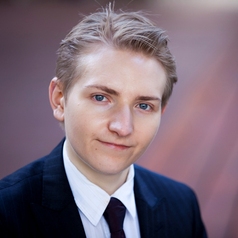
Mark Humphery-Jenner
Associate Professor of Finance, UNSW Australia
Mark is an Associate Professor of Finance at UNSW Business School. His research interests are mainly in corporate governance and in law & finance. His work has appeared in major finance journals such as Journal of Financial Economics, Review of Financial Studies, and Journal of Financial and Quantitative Analysis. He received his PhD in finance from UNSW in 2012 and has also received qualifications in law.
Less ![]()
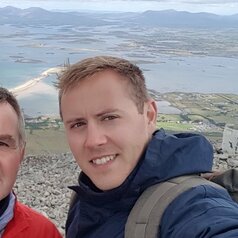
Mark Jordan
Lecturer in Housing Law, University of Southampton
Dr Mark Jordan lectures in land law, housing law and housing rights at Southampton Law School, University of Southampton. His main field of interest is exploring how housing rights are employed by social movements in campaigns around housing. He is currently working on a number of national and international housing law and policy collaborative research projects which focus on the growing role of tenants unions in Scotland and Spain, regulation of local authority housing in Ireland, student housing in England, the law and homelessness in Ireland and EU regulation of mortgage lending.
Less ![]()
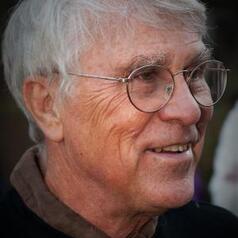
Mark Juergensmeyer
Professor of Sociology and Global Studies, University of California, Santa Barbara
Mark Juergensmeyer is Distinguished Professor of Sociology and Global Studies and the founding director of the Orfalea Center for Global and International Studies at the University of California, Santa Barbara. He is an expert on religious violence, conflict resolution and South Asian religion and politics, and has published more than three hundred articles and thirty books. His widely-read Terror in the Mind of God: The Global Rise of Religious Violence (University of California Press, 4th edition 2017), is based on interviews with religious activists around the world--including Buddhist extremists in Myanmar, leaders of Hamas, imprisoned activists associated with al Qaeda and the Islamic State, and Christian militants in the United States--and was listed by the Washington Post and the Los Angeles Times as one of the best nonfiction books of the year. A previous book, Global Rebellion: Religious Challenges to the Secular State (University of California Press, 2008) covers the rise of new nationalisms in response to the global decline of the secular state. It was named by the New York Times as one of the notable books of the year. His book on Gandhian conflict resolution has been reprinted as Gandhi's Way (University of California Press, Revised Edition, 2005), and was selected as Community Book of the Year at the University of California, Davis. He has co-edited The Encyclopedia of Global Religions (Sage Publications 2007), The Oxford Handbook of Global Religions (Oxford University Press 2007), and co-edited with Saskia Sassen and Manfred Steger the Oxford Handbook of Global Studies (Oxford University Press 2019). He co-edited with Craig Calhoun and Jonathan vanAntwerpen Rethinking Secularism (Oxford University Press 2011). His latest book is God and War: A Meditation on Religion and Warfare (Oxford University Press 2020). He has received research fellowships from the Wilson Center in Washington D.C., the Harry Frank Guggenheim Foundation, the U.S. Institute of Peace, and the American Council of Learned Societies. He is the 2003 recipient of the Grawemeyer Award for contributions to the study of religion, and is the 2004 recipient of the Silver Award of the Queen Sofia Center for the Study of Violence in Spain. He received an Honorary Doctorate from Lehigh University in 2004 and a Distinguished Teaching Award from the University of California, Santa Barbara in 2006. Since the events of September 11 he has been a commentator in the news media, including CNN, NBC, CBS, BBC, and NPR.
Less ![]()
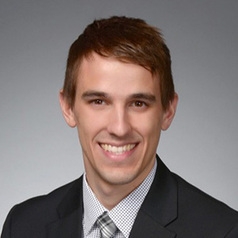
Mark Korpics
Assistant Professor of Radiation and Cellular Oncology, University of Chicago
Mark Korpics is a radiation oncologist whose research interests include using radiomics, imaging analysis, combination stereotactic body radiotherapy and immunotherapy, and population-based studies to improve cancer treatments.
His work has been published in the International Journal of Radiation Oncology, Biology, Physics, Cancer, Head and Neck, Journal of Applied Clinical Medical Physics, and Nature Communications.
Korpics completed his undergraduate studies at New York University with a BS in physics and a minor in chemistry and philosophy. He subsequently attended medical school at Loyola University Chicago Stritch School of Medicine, and completed his internship at Resurrection Medical Center and a radiation oncology residency at the University of Chicago. During his residency, he received an MS in public health sciences from the University of Chicago.
Less ![]()
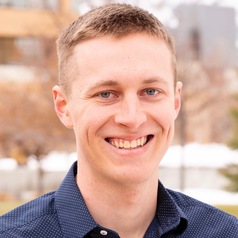
Mark Kreider
Ph.D. Candidate in Forest and Conservation Science, University of Montana
I'm an ecologist, NSF Graduate Research Fellow and Ph.D. candidate in the W.A. Franke College of Forestry & Conservation at the University of Montana. My research focuses on understanding the natural role of wildfire, how ecosystems and societies respond to disturbance, and how to make public lands accessible to all. I'm passionate about linking art and science to communicate my work in accessible and engaging ways. Learn more at https://www.markkreider.com/
Less ![]()
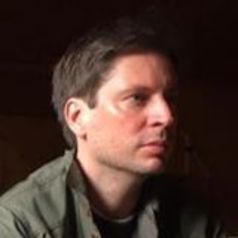
Mark Lacy
Senior lecturer, Politics, Philosophy, and Religion, Lancaster University
I am currently writing a book on the future of war. In 2014 my book Security, Technology and Global Politics: Thinking with Virilio was published: the book examines the work of Paul Virilio, a French urbanist and philosopher who has written since the 1970s on war, security, cities and politics: http://www.routledge.com/books/details/9780415576048/
I am editor of the Routledge series on Conflict, Security and Technology.
Less ![]()
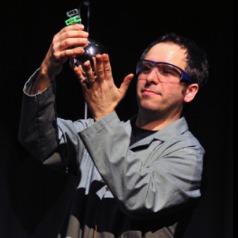
Mark Lorch
Dr Mark Lorch is a senior lecturer in biological chemistry at the University of Hull. He trained as a protein chemist, studying protein folding and function. His research now focuses on the chemistry of a broad range of biological systems including lipids, proteins and even plant spores.
Mark is also a dedicated science communicator, he blogs at www.chemistry-blog.com and occasionally for the Guardian. He gives regular talks to schools, the public and conferences (sometimes all at once, at science festivals or TEDx) and he occasionally pops up on the radio and TV explaining science and technology to a public audience.
Less ![]()
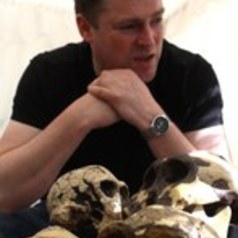
Mark Maslin
Professor of Climatology, UCL
Mark Maslin FRGS is a Professor of Physical Geography at University College London. He is a Royal Society Industrial Fellowship and Founding Director of Rezatec Ltd. He is science advisor to the Global Cool Foundation, Climatecom Strategies, Sopra-Steria, and Carbon Sense Ltd. He is member of Cheltenham Science Festival Advisory Committee. Maslin is a leading scientist with particular expertise in past global and regional climatic change and has publish over 150 papers in journals such as Science, Nature, Nature Climate Change, The Lancet and Geology. He has been awarded research council, charity and Government grants of over £40 million. His areas of scientific expertise include causes of past and future global climate change and its effects on the global carbon cycle, biodiversity, rainforests and human evolution. He also works on monitoring land carbon sinks using remote sensing and ecological models and international and national climate change policies.
Professor Maslin has presented over 45 public talks over the last three years including UK Space conference, Oxford, Cambridge, Leeds, RGS, Tate Modern, Frontline Club, Fink Club, Royal Society of Medicine, British Museum, Natural History Museum, The Baker Institute, Goldman Sachs and the Norwegian Government. He has supervised 10 Research fellows, 15 PhD students and 25 MSc students. He has also have written 8 popular books, over 30 popular articles (e.g., for New Scientist, The Times, Independent and Guardian), appeared on radio and television (including Timeteam, Newsnight, Dispatches, Horizon, The Today Programme, Material World, BBC News, Channel 5 News, and Sky News). His latest popular book is the high successful Oxford University Press “Climate Change: A Very Short Introduction” the third edition was published in 2014 and has sold over 45,000 copies. Maslin was also a co-author of the 2009 Lancet report ‘Managing the health effects of climate change’. He was included in Who’s Who for the first time in 2009 and was granted a Royal Society Wolfson Research Merit Award for the study of early human evolution in East Africa in 2011. He is currently the Director of the London NERC Doctoral Training Partnership.
Less ![]()
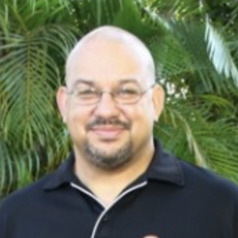
Mark Mayo
Associate Deputy Director, Indigenous Leadership and Engagement, and senior researcher, Menzies School of Health Research
Mark Mayo is a Darwin local and graduate of Charles Darwin University. Mark has worked on many research projects during his time at the Menzies School of Health Research from malaria and melioidosis to petrol sniffing and childhood ear diseases.
For over 14 years Mark has been researching melioidosis, a potentially fatal tropical disease found in the tropical areas of Northern Australia. Mark’s research into this disease covers many different aspects, from early detection of the disease in hospital and clinical settings, to understanding the environmental niche of the bacteria and the potential exposure risks to people and animals in an endemic region.
Less ![]()
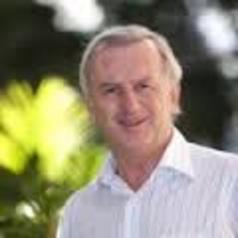
Mark McGovern
Senior Lecturer, QUT Business School, Economics and Finance, Queensland University of Technology
Dr Mark McGovern currently lectures in international economics and finance for international business at QUT. Funded industry research projects have included work for Queensland Main Roads on Financing Transport Infrastructure and for South West Natural Resource Management on Agricultural Viability.
Mark’s long term research interest is in industry development in open economies. This saw him invited to the 2020 Summit with follow up research on food security. He is an active member of the Rural Finance Roundtable Working Group.
As an applied economist with experience over many industries, he draws from theoretical areas of regional, industry and international economics; impact analysis; and economics more generally.
Mark has convened a number of summits and seminars to promote dialogues on matters of importance to the Queensland and Australian economies.
Less ![]()
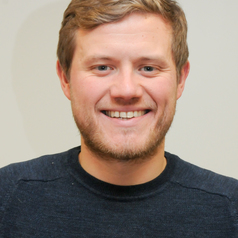
Mark McLay
Mark joined GCU having just completed his PhD at the University of Edinburgh in 2015. His thesis examined the Republican party's challenge to the War on Poverty between 1964 and 1968 and he is currently working to expand it into book which will take the project into 1973 when the Nixon Administration closed the Office of Economic Opportunity (and thus effectively ended the War on Poverty).
He has taught primarily American History for over five years at a variety of institutions. He currently teaches an Honours course on the 1920s and 1930s in the US.
Mark is primarily interested in the political history of the twentieth century in the United States and the United Kingdom. In particular, he enjoys researching the influence of prominent politicians on their respective country's history. Are they able to instigate successful social change? Are they able to shape public opinion, or are they forever shaped by it? He is also especially interested in the intersection between politics and socio-economic policy in the US during the twentieth century.
Mark co-hosts and produces the American History Too! podcast with Dr. Malcolm Craig. Episodes on issues ranging from the 1920s Scopes Monkey Trial to the HIV/AIDS Crisis in the 1980s can be found on iTunes or http://americanhistorytoo.podbean.com/.
Less ![]()
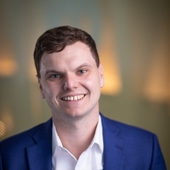
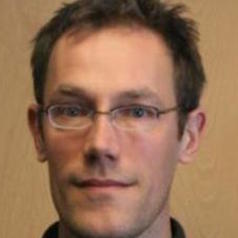
Mark Moritz
My research focuses on the transformation of African pastoral systems. I examine how pastoralists adapt to changing ecological, political and institutional conditions that affect their lives and livelihoods. I have been conducting research with pastoralists in the Far North Region of Cameroon since 1993. The long-term research has resulted in strong collaborations with local researchers, which has allowed me to develop innovative, interdisciplinary research projects with colleagues at the Ohio State University and the University of Maroua in Cameroon. Check out my website for more information about my research and teaching activities: http://mlab.osu.edu
Less ![]()
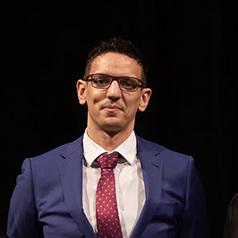
Mark Muhannad Ayyash
Professor, Sociology, Mount Royal University
Mark Muhannad Ayyash is Professor of Sociology at Mount Royal University. He is the author of A Hermeneutics of Violence (UTP, 2019). He teaches and writes in the areas of social and political theory, postcolonial theory, political violence, sovereignty, anti-Palestinian racism, and social movements, particularly focusing on the Palestinian-Israeli struggle. He has published several academic articles, book chapters, and has a co-edited book on Protests and Generations in the Middle East, North Africa and the Mediterranean. His opinion pieces have been published in Al-Jazeera, The Baffler, Middle East Eye, and Mondoweiss, among others.
Less ![]()
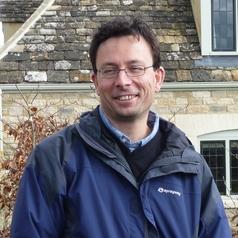
Mark New
Director, African Climate and Development Initiative, University of Cape Town
Mark New was appointed Pro-VC for Climate Change and Director of the ACDI in July 2011. He is also Professor of International Development (part time) at the University of East Anglia. His research focuses on climate change detection, processes, scenarios, impacts and adaptation. He sits on the SA Global Change Science Committee, is on the editorial board of Environmental Research Letters, and various other science committees and reference groups.
Less ![]()
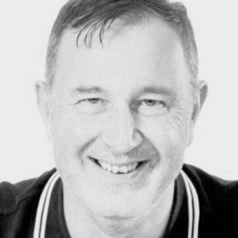
Mark Parker
Assistant Professor in Textile Design, School of Textiles and Design, Heriot-Watt University
I am an Assistant Professor for the BA (Hons) Design for Textiles programme within the School of Textiles and Design. The programme has very established pathways in printed, woven and knitted textiles and the market areas cover fashion, interiors and surface pattern.
Within the School I am responsible for final year textile design units and have responsibility of the coordination of external facing events such as The New Designers Exhibition where the quality of student work on the programme has been recognised by being awarded prizes by companies such as John Lewis, Sanderson Design Group, and The Worshipful Company of Weavers.
I have acted as a subject expert for reviewing textile design education provision for a number of leading UK Universities and I am currently the external examiner for Textile Design at University of Bolton and University of Huddersfield.
My research interests lie in examining the role of drawing on the printed textile curriculum by using archive sources. I have presented on the subject at international conferences such as Textile Research in Progress (Loughborough) as well as exhibiting in Iceland (Reykjavik Museum) and running workshops in China (Tsinghua University)
As a practitioner I have produced artwork and gallery pieces for leading interior & fashion textile companies and galleries across Europe, America and Australia for companies such as Liberty, Sheridan and Scalamandre.
Less ![]()
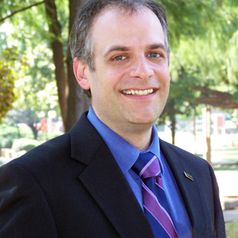
Mark Payton
Mark Payton, Ph.D., is a Professor and Head of the Department of Statistics at Oklahoma State University. He has been on the faculty at OSU for 25 years. His research spans many disciplines, including political modelling, biomedical sciences, and biology.
Less ![]()
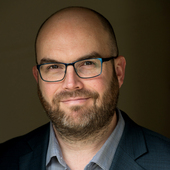
Mark Riboldi
Lecturer in Social Impact and Social Change, UTS Business School, University of Technology Sydney
Less ![]()
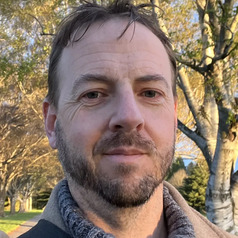
Mark Rickerby
Lecturer, School of Product Design, University of Canterbury
Mark Rickerby is founder of Fictiveworks. a design and technology lab working in the domains of interactive storytelling, creative collaboration, simulation and symbolic AI.
He has more than 20 years experience delivering digital products, publishing projects, games and internal systems for high-growth startups, entrepreneurs, small businesses and government organisations in Wellington, Auckland, Berlin, Sydney and Christchurch.
Less ![]()

Mark Robert Anderson
Professor in Computing and Information Systems, Edge Hill University
After gaining a PhD from the University of Liverpool, Mark worked for a number of large commercial organisations in software development. This work as allowed to gain a broad range of experiences in all aspects of the software lifecycle in industries which have represented the automotive, retail and financial sectors as well as working in consultancy for a number of years.
Since moving into Higher Education, Mark has been employed as a Professor in Computing and Information Systems, and has led courses at both undergraduate and postgraduate levels in subjects such as Grid Computing, Distributed Systems and Java Programming. He has also introduced new subjects into the Computing curriculum in collaboration with colleagues, such as Physical Computing to engage the students with programming activities. Mark has also successfully supervised a number of students through the dissertation/project process and is currently the Programme Leader for BSc(Hons) Computing (Application Development) course and Programme Leader for the MSc Advanced Software Application course.
He has also worked with a number of external clients to develop novel solutions for interacting with customers. In this capacity, solutions have been developed using Microsoft Kinect cameras, Leap Motion, mobile devices and embedded systems.
Mark is currently the Director of the Centre for Data Analysis and Representation on behalf of the department. The group consists of an expanding team and is currently undertaking a number of research projects with national and international partners. Examples of the research projects which the group are investigating includes the Software Validation Project which is researching quality assurance of one of the most significant software models in the world. Mark is also leading the group’s involvement on the international HistorySpace project, and is working with national organisations in developing further projects. Mark is the lead academic on two KTP projects which are aimed at utilising data analytics and visualisation to enhance business processes for local SMEs.
Less ![]()
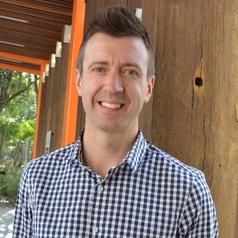
Mark Robinson
Senior Research Fellow, Institute for Social Science Research, The University of Queensland
Dr Mark Robinson is an evaluation and public health specialist in the Institute for Social Science Research at the University of Queensland. Mark has extensive experience leading large scale research and evaluation projects in the public health sector in Scotland, and his work has directly informed national policy and legislation. In his previous role as a Public Health Intelligence Principal at NHS Health Scotland (the national public health improvement agency in Scotland) he led numerous projects to better understand the health of Scotland’s population and the factors that influence it.
Less ![]()
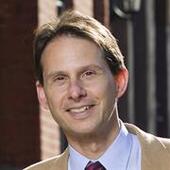
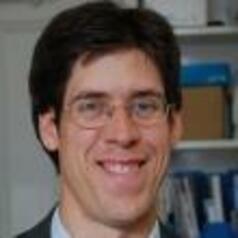
Mark Sandford
Honorary Professor of Local Government, University of Bristol
Mark Sandford is a researcher specialising in local government, devolution, local government finance and territorial identity. He works as a senior research analyst in the House of Commons Library. He has published a number of reports, papers and journal articles on local government finance and English devolution. He has also been a research fellow at the Constitution Unit, University College London, and head of research at the Electoral Commission.
Less ![]()
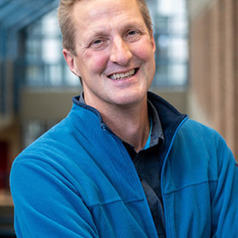
Mark Schaller
Professor, Psychology, University of British Columbia
Dr. Mark Schaller (he/him/his) is a Professor of Psychology at the University of British Columbia. In recent years his research has focused on human motivational systems (e.g., the “behavioral immune system,” the parental care motivational system) and their implications for social cognition and social interaction (e.g., impression formation, moral judgment, prejudice, conformity). His research also addresses broader questions about evolutionary foundations of psychological processes, and about the impact of psychological processes on human culture.
Less ![]()
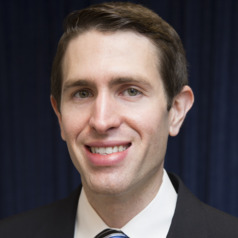
Mark Shepard
Mark Shepard is an assistant professor at Harvard Kennedy School of Government and a faculty research fellow at the National Bureau of Economic Research (NBER). His research studies health care markets, with topics at the intersection of health, industrial organization, and public economics. Much of his work focuses on competition and policy design in health insurance markets, particularly in public programs like the Massachusetts/ACA health insurance exchanges and Medicaid managed care. Mark received his PhD in economics from Harvard University (2015) and his A.B. in applied math from Harvard (2008). He was a Post-doctoral Fellow (in Aging and Health Economics) at the NBER during the 2015-16 academic year before starting as an assistant professor in 2016-17. Before graduate school, Mark spent a year working at the Brookings Institution's Engelberg Center for Health Care Reform (2008-09).
Less ![]()
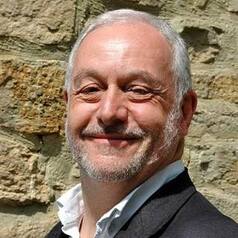
Mark Shucksmith
Professor of Planning, Newcastle University, Newcastle University
Mark Shucksmith is a rural sociologist and Professor of Planning at Newcastle University.
He was Director of Newcastle University’s Institute for Social Renewal from 2012-18, and is also Visiting Professor in Ruralis at the University of Trondheim (NTNU). Before he joined Newcastle University he was Professor of Land Economy at the University of Aberdeen.
He is a Trustee of Carnegie UK, Macaulay Development Trust and European Rural Communities Alliance. In recent years he chaired the Scottish Government’s Committee of Inquiry into Crofting, acted as specialist advisor to two House of Lords select committees, and was a Board member of the Countryside Agency, Commission for Rural Communities and Action with Communities in Rural England (ACRE).
Professor Shucksmith was appointed Officer of the Order of the British Empire (OBE) in the 2009 New Year Honours.
Research interests include: poverty and social exclusion in rural areas, sustainable ruralism, rural development, agricultural policy, and affordable rural housing. He is author of numerous books.
Less ![]()
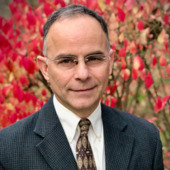
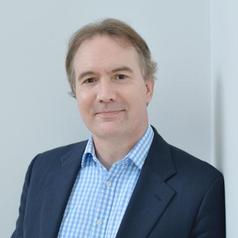
Mark Skilton
Mark's research interests are in technology ecosystems around defining value and monetization; multi-channel operating model strategies; data standards, governance and compliance, and visualization strategies.
He has led large multi-division and multi-country transformation programs in a variety of public and private companies across their supply chains including retail, automotive, aerospace, pharmaceuticals, food & drink, electronics, utilities, transport, financial services and defense. Mark's experience includes new media multi-channel services, big data analytics and mobile ecosystems for new business models having worked directly in digital TV and media organizations and telecommuncations companies for marketing and new business services development.
Less ![]()
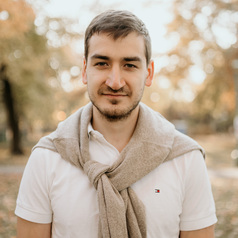
Mark Sorin
Étudiant au MD-PhD, chercheur en cancer du poumon, McGill University
Je suis étudiant au MD-PhD à l'université McGill avec un intérêt pour la recherche reliée au cancer du poumon.
Less ![]()
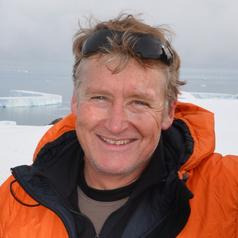
Mark Stevens
Adjunct Associate Professor, University of Adelaide
MARK STEVENS – history
With Adelaide as my hometown I enjoyed playing sports most of the time through school years. Not knowing what I wanted to do I naturally gravitated to university where I graduated with Bachelor of Science (Hons) at Flinders University in 1998. I then did what most considered was an oxymoron and migrated with my ‘soon to be’ wife to New Zealand to undertake a PhD at The University of Waikato followed by Postdoctoral Research at Massey University with a 6-month fellowship with CNRS in Paris in 2008. By this time we had two wonderful ‘kiwi’ kids and had become stout ‘All Blacks’ fans! In September 2008 I began my current research position at the South Australian Museum (clearly free baby-sitting was the motivation at the time). At the South Australian Museum, I enjoy collaborating with researchers from Flinders University and The University of Adelaide (where I am an Assoc Prof affiliate) that have provided excellent research facilities, and opportunities to co-supervise honours and PhD students. This has been possible through research grants from the Australia Pacific Science Foundation to study bee diversity and evolution in the South West Pacific. Recent ARC success in 2021 has come with a 7-year funded ARC Special Research Initiative hosted by Monash University “Securing Antarctica's Environmental Future” (https://arcsaef.com/).
Some stats on me if you like numbers: since 2003 I have a h-index of 38 and an i10 of 101 from 181 publications with over 5423 citations (see Google Scholar for publication list: https://scholar.google.com.au/citations?user=Zhnqx9IAAAAJ&hl=en).
Less ![]()
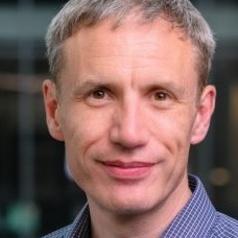
Mark Stevenson2
Senior Lecturer, University of Sheffield
Mark Stevenson is a Senior Lecturer in Sheffield University's School of Computer Science where he is a member of the Natural Language Processing group. The aim of his research is the development of systems to extract knowledge from text and assist users in accessing this information.
He has been Principal Investigator of projects funded by a range of sources including the EU, EPSRC and Google. He was an EPSRC Advanced Research Fellow and co-ordinator of the EU-funded project PATHS.
He has also worked in a range of commercial and academic organisations including Reuters Ltd (where he was involved in the production and dissemination of the widely used Reuters Corpus), Adastral Park (British Telecom’s research lab) and the Center for the Study of Language and Information, Stanford University.
Less ![]()
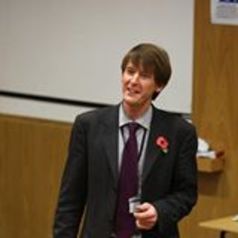
Mark Stuart
Assistant Professor, Faculty of Social Sciences, University of Nottingham
Mark Stuart is an Assistant Professor in the School of Politics and International Relations. For the last twenty years, his main research area (along with Professor Philip Cowley) has been in the realm of parliamentary voting behaviour. He has also published widely in the field of British political biography, having penned portraits of Douglas Hurd (1998) and John Smith (2005). His latest biography - on Eric Forth - is due to be published in the late autumn of 2017.
Less ![]()
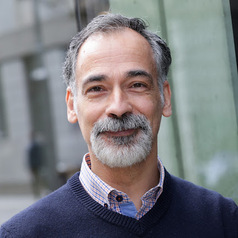
Mark Sujan
Chair in Safety Science, University of York
Mark is a Chartered Ergonomist and Human Factors specialist (C.ErgHF). He has worked in patient safety and other safety-critical industries for over 25 years.
Mark is Professor of Safety Science at the University of York, with a particular focus on safety assurance of systems involving artificial intelligence (AI) technologies. Mark is a Trustee of the Chartered Institute of Ergonomics and Human Factors (CIEHF), which is the professional membership body for Human Factors and Ergonomics in the UK. He chairs the CIEHF special interest group on AI and Digital Health.
Less ![]()
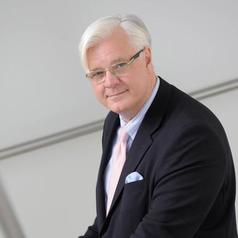
Mark Taylor
Mark Taylor is Dean of Warwick Business School, where he is also Professor of Finance. As well as previously holding a number of senior academic appointments, he has extensive experience of the finance industry as a foreign exchange trader and as a financial markets economist at both the Bank of England and the International Monetary Fund. Prior to taking up the Deanship at Warwick in 2010, he worked as a Managing Director at BlackRock, the world’s largest asset manager, where he led the European arm of a multi-billion dollar hedge fund.
Less ![]()
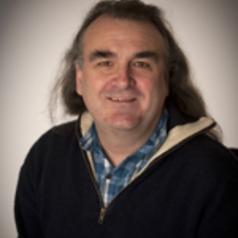
Mark Taylor2
Research Officer, University of Leeds
Before starting a late career in academia I worked in the field of IT. In 1996 I started a new career path when I came to Leeds to read Sports Science (Outdoor Activities).
After graduating with honours in 1999 I continued in this vein with a PhD which focused on the impact absorbing mechanisms of climbing helmets. Upon completion of my PhD I was employed as a Research Fellow on an EPSRC funded project to investigate, among other things, novel ways to improve the measurement of air permeability and moisture vapour transmission. Since the end of this project I have worked in many areas related to comfort in extreme environments and protection from falls from a height.
My research interests cover the comfort and protection of clothing systems for extreme and hostile environments and the role of textiles in protection in falls from height or from falling objects. This encompasses areas as diverse as the design of waterproof zip fasteners, improving the impact absorption of properties of sports protectors, measuring comfort in outdoor footwear and preventing scalding through firefighter clothing systems. I have also been active in the field of biomimetic textiles, and supervised a PhD on superadhesion using the gecko foot as inspiration. I developed miniature data logging sensors that are unobtrusive enough to allow the measurement of the microclimate in a shoe. Work is ongoing to further develop these to remove wires from the system. I also developed a novel new system for quick measurements of moisture vapour transmission under realistic conditions which was extensively tested by a PhD student.
Less ![]()
- Market Data























